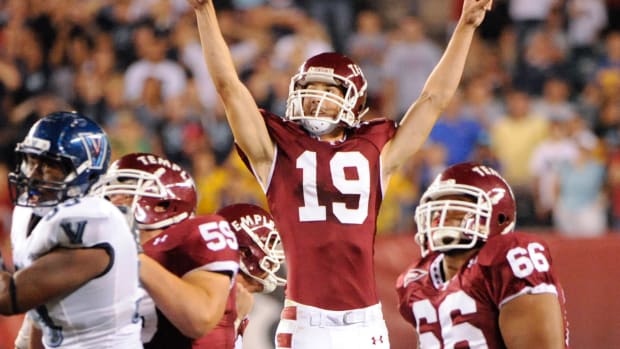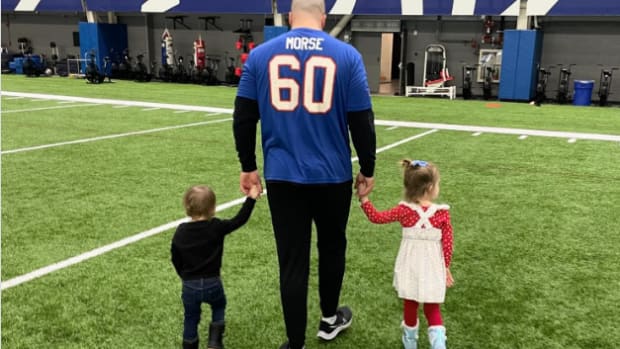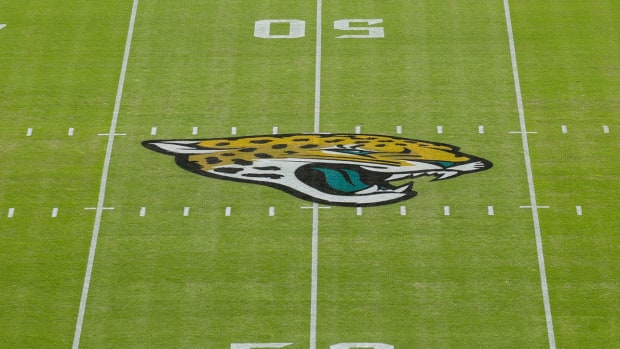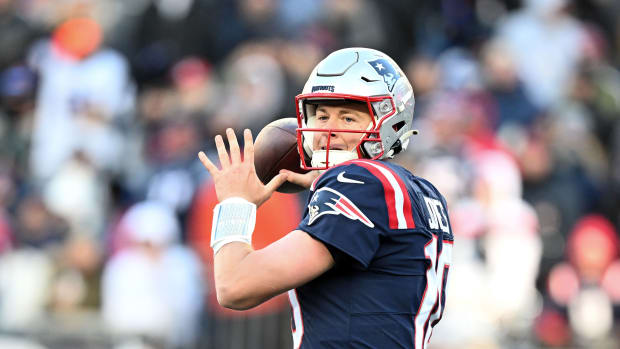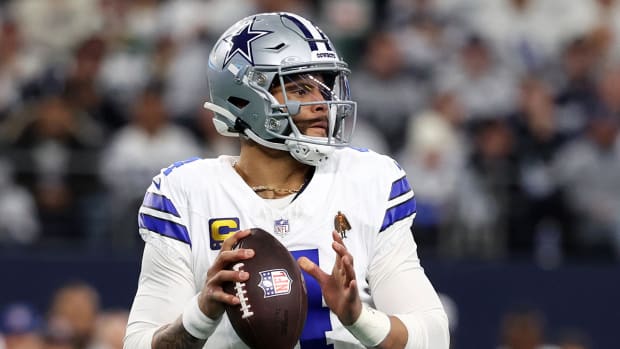Could Jaguars' CJ Henderson Be a Viable Defensive Rookie of the Year Candidate?
One year after the Jacksonville Jaguars had one of the most productive rookies in all of the NFL with defensive end Josh Allen, the hope in Jacksonville is the team can get a repeat with first-year cornerback CJ Henderson.
Allen, the No. 7 overall pick in the 2019 NFL Draft, was so impressive as a rookie that he led all rookies and the Jaguars in sacks, set franchise rookie records, and earned a Pro Bowl trip. But despite his terrific production and lofty accolades, Allen was snubbed as a Defensive Rookie of the Year candidate. But could Henderson finish what Allen started and become the team's first-ever rookie to win the award this fall?
According to Chris Spooner of Pro Football Network, there is reason to believe Henderson can be a legitimate candidate to win the award. The strongest reason for believing so is the fact that Henderson, like Allen last year, is one of the most athletic defenders entering the NFL.
Relative Athletic Score is a metric compiled by Kent Lee Platte to grade a player's measurements on a 0 to 10 scale compared to their peer position group. It takes into account a player's speed, agility, size, and explosiveness.
Henderson's RAS is absolutely off of the charts thanks to an elite performance at the NFL Scouting Combine this year. Henderson measured 6-foot-1 and 202-pounds and recorded a 4.39 40-yard dash, a 37.5-inch vertical jump, a 127-inch broad jump, and 20 reps on the bench press.

CJ Henderson's RAS via Kent Lee Platte.
According to Spooner and Pro Football Network, a strong RAS score is one of the best indicators for projecting recent Defensive Rookie of the Year winners, which suggests Henderson could be a legitimate candidate for the award.
"There are two main trends we see when we look at the list of Defensive Rookie of the Year award winners and their RAS data. The first trend that we see is positional. Since 2000, a whopping 60% of the winners have played linebacker. A defensive end has taken home the award 20% of the time, with the remaining 20% split between defensive tackle and cornerback in equal numbers," Spooner wrote.
"The second heavy trend we see is no surprise. The better the athlete, the better their chances of success. Of the 19 winners we have RAS data for dating back to 2000, only three failed to post an “Elite” RAS grade. Terrell Suggs took home the award in 2003 after posting a RAS of 6.48. Marcus Peters did so in 2015 with a RAS of 7.22. 2018 winner Darius Leonard is the only one to take home the award after posting a “Poor” RAS with a 4.9. "
Due to Henderson's athleticism and the fact that he will be tasked with being the Jaguars' top cornerback from the jump, there is an argument to be made for him in terms of Defensive Rookie of the Year candidacy. Only three cornerbacks have won the award since 1998, but two of those cornerbacks have occurred in recent years, suggesting it is easier for a cornerback to win the award today than it was in the previous rush-heavy era.
According to Spooner, Henderson shares some similarities with the award winners before him, Marcus Peters (2015) and Marshon Lattimore (2017), though he will need to prove he can share the same on-field impact they had.
"While Peters was one of the three winners with a non-elite RAS grade, Lattimore took home the award after turning in a perfect 10 on the RAS scale. Henderson fell just short of matching Lattimore’s RAS, turning in a 9.98 RAS of his own. Henderson was billed as the most complete corner available in 2020, and the RAS certainly reflects that," Spooner wrote.
If Henderson hopes to be the first Jaguar to ever be named Defensive Rookie of the Year, he will likely have to nearly match the production that Peters and Lattimore had as rookies. Playing in Henderson's favor will be the fact that he will play early and often and will likely be Jacksonville's No. 1 cornerback, thus drawing matchups with No. 1 wide receivers and getting targetted enough to put up respectable numbers.
Peters started 16 games as a rookie for the Chiefs in 2015, playing 1,036 regular season snaps (95%). That season, Peters recorded a league-leading eight interceptions and 26 pass deflections, one forced fumble, and two interceptions returned for touchdowns. He also recorded a league-high 280 interception yards in a Pro Bowl rookie season, creating an impressive list of accomplishments while starting for an 11-5 team.
Meanwhile, Lattimore had a similarly successful rookie year on the 11-5 New Orleans Saints. In 13 starts, Lattimore recorded five interceptions, 18 pass deflections, one forced fumble, one fumble recovery, and one interception returned for a touchdown.
If Henderson is to have any shot to win Defensive Rookie of the Year, he will need to produce to the level of Peters and Lattimore. Each recorded at least five interceptions and 18 pass deflections, along with at least one interception returned for a touchdown.
Henderson recorded six interceptions and nine pass deflections in his first two seasons of college, but the final year of his college career saw him record 11 pass deflections and zero interceptions. For him to be a viable award candidate, he will have to prove himself as a game-changing ballhawk first and foremost.
Working in Henderson's favor, however, is the fact that he will get an abundance of opportunities on the outside for Jacksonville. They were high enough on him to draft him No. 9 overall, and they will lean on him early and often as a rookie. If he can turn that opportunity into production, he could land himself directly on the short list of candidates.
